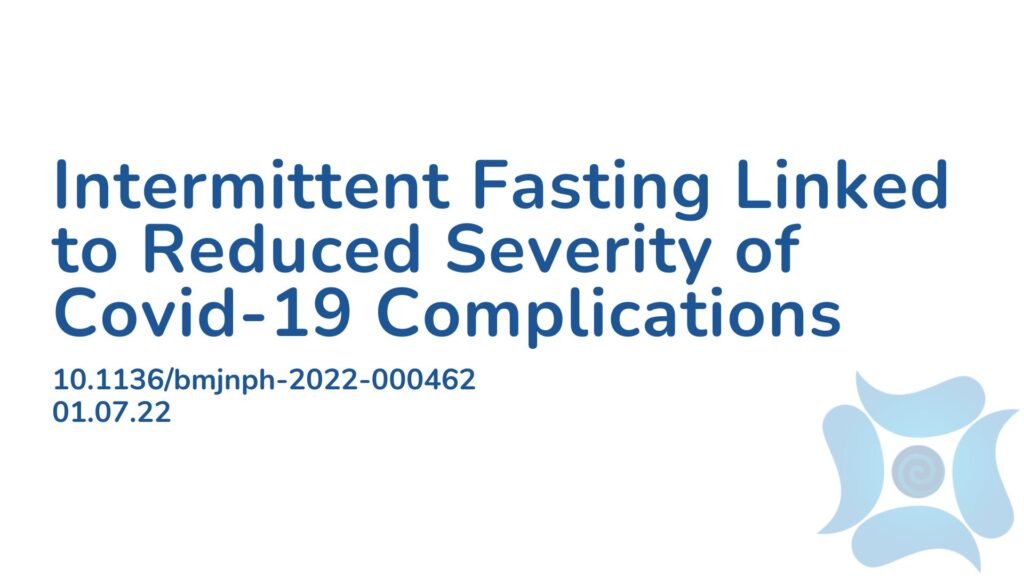Summary: Intermittent fasting is known to have a wide range of health benefits such as lowering the risk of diabetes, heart disease and reducing inflammation. The researchers of this paper aimed to discover whether intermittent fasting would reduce the severity of Covid-19 complications and found that people who regularly fast were less likely to experience severe complications. This study has potential limitations due to its observational nature, as the participants were not randomised to the behaviour, however, it shows that fasting deserves further investigation for potential preventive or therapeutic use as a therapy for Covid-19.
Abstract:
Objectives: Intermittent fasting boosts some host defence mechanisms while modulating the inflammatory response. Lower-frequency fasting is associated with greater survival and lower risk from COVID-19-related comorbidities. This study evaluated associations of periodic fasting with COVID-19 severity and, secondarily, initial infection by SARS-CoV-2.
Design: Prospective longitudinal observational cohort study.
Setting: Single-centre secondary care facility in Salt Lake City, Utah, USA with follow-up across a 24-hospital integrated healthcare system.
Participants: Patients enrolled in the INSPIRE registry in 2013–2020 were studied for the primary outcome if they tested positive for SARS-CoV-2 during March 2020 to February 2021 (n=205) or, for the secondary outcome, if they had any SARS-CoV-2 test result (n=1524).
Interventions: No treatment assignments were made; individuals reported their personal history of routine periodic fasting across their lifespan.
Main outcome measures: A composite of mortality or hospitalisation was the primary outcome and evaluated by Cox regression through February 2021 with multivariable analyses considering 36 covariables. The secondary outcome was whether a patient tested positive for SARS-CoV-2.
Results: Subjects engaging in periodic fasting (n=73, 35.6%) did so for 40.4±20.6 years (max: 81.9 years) prior to COVID-19 diagnosis. The composite outcome occurred in 11.0% of periodic fasters and 28.8% of non-fasters (p=0.013), with HR=0.61 (95% CI 0.42 to 0.90) favouring fasting. Multivariable analyses confirmed this association. Other predictors of hospitalisation/mortality were age, Hispanic ethnicity, prior MI, prior TIA and renal failure, with trends for race, smoking, hyperlipidaemia, coronary disease, diabetes, heart failure and anxiety, but not alcohol use. In secondary analysis, COVID-19 was diagnosed in 14.3% of fasters and 13.0% of non-fasters (p=0.51). Conclusions: Routine periodic fasting was associated with a lower risk of hospitalisation or mortality in patients with COVID-19. Fasting may be a complementary therapy to vaccination that could provide immune support and hyperinflammation control during and beyond the pandemic.
Article Publication Date: 01.07.22
DOI: 10.1136/bmjnph-2022-000462



